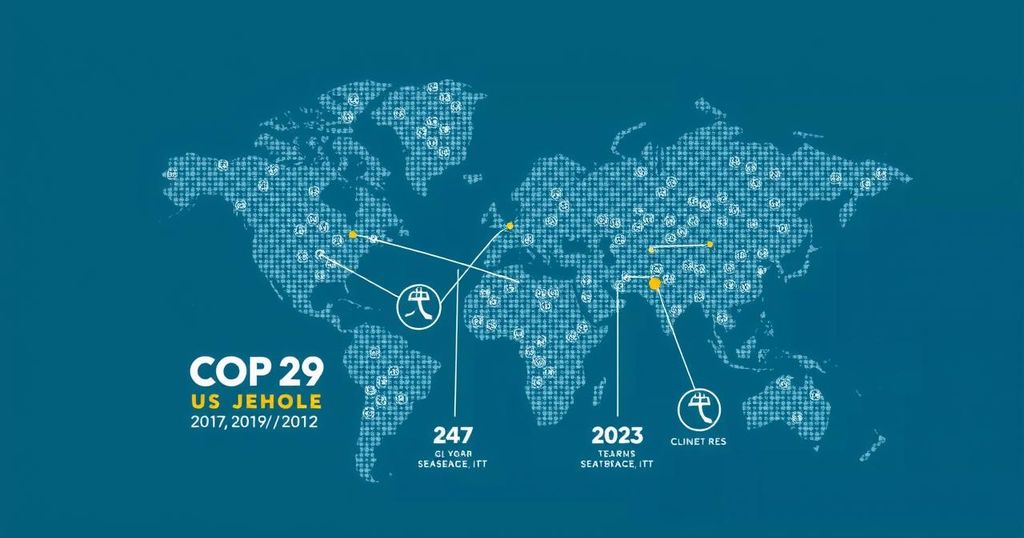At COP29, the U.S. climate team, led by John Podesta, emphasizes ongoing commitments to address climate change amid the uncertainties posed by the return of Donald Trump. Active participation focuses on increasing financial aid for developing countries to combat climate impacts, with significant negotiations underway regarding future climate financing. Despite concerns about potential shifts in U.S. policy, the administration aims to exhibit leadership and responsibility in the international dialogue on climate issues.
As the Trump administration’s return looms, the U.S. delegation led by climate envoy John Podesta remains actively engaged in the UN climate talks at COP29 in Baku. Despite the potential future policy shifts, officials emphasize the continuity of U.S. climate efforts. Podesta has been participating in numerous discussions, asserting that federal efforts will persist amidst changing political tides. Meanwhile, the focus has shifted towards enabling financial aid to help developing countries adapt to climate change, a pivotal topic in the ongoing negotiations. The discussions also spotlight the dichotomy between the current administration’s efforts and the anticipated constraints that might accompany Trump’s possible policies. Rachel Cleetus of the Union of Concerned Scientists expressed concerns about the stagnation expected from a prospective Trump-led administration but maintained that the Biden administration still holds responsibilities at COP29 to forge ambitious climate outcomes. Ali Zaidi, Biden’s climate adviser, echoed this sentiment, highlighting the progress made in previous years and the ongoing efforts to enhance climate finance as core components of their participation at COP29.
The context of the COP29 United Nations climate conference revolves around the ongoing negotiations addressing climate change and financing for vulnerable nations. The U.S. role in these discussions is crucial, given that the political landscape may shift significantly with the anticipated return of Donald Trump to the presidency. Historically, the Trump administration has been characterized by skepticism towards climate change measures, which raises concerns about future U.S. commitments under international climate agreements. The focus of COP29 includes ensuring that substantial financial backing is provided to assist developing nations in their transition toward sustainable energy sources and in climate change adaptation efforts, which is a priority within the conference discussions.
In conclusion, the U.S. delegation at COP29, though faced with uncertainty due to the potential influence of a shifting political landscape, remains active and seeks to underscore its commitment to climate action and financial support for weaker nations. With discussions centered on financial aid, continued partnership, and the resilience necessary to navigate impending political challenges, the U.S. aims to maintain its role in international climate negotiations, irrespective of the forthcoming electoral outcome.
Original Source: www.fox28spokane.com






